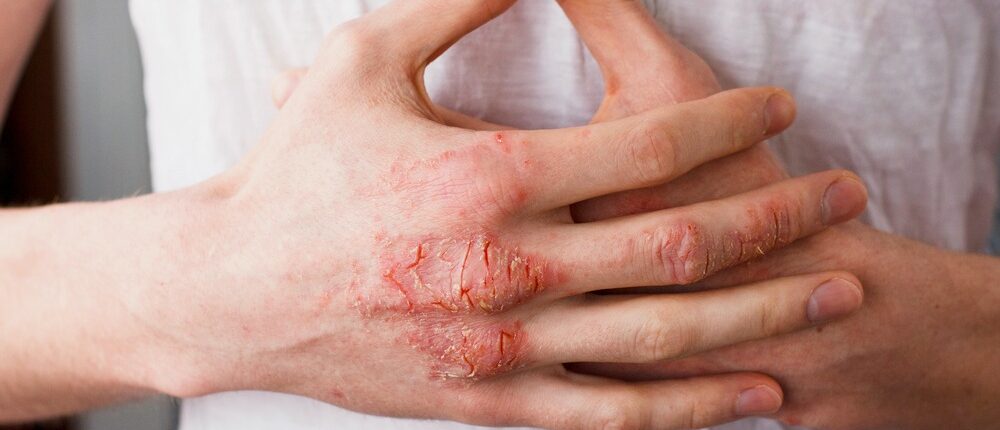

Arthritic psoriasis is a skin and joint condition characterized by joint pain with scaly red patches on the skin. It’s a long-term condition that becomes progressively worse if not treated early. The worst cases of this condition require surgery. Otherwise, it may lead to deformity or disability. Early diagnosis will help prevent this and provide proper psoriatic arthritis medication plan.
Frequently Asked Questions About Arthritic Psoriasis
Who Is at risk?
People aged between 30 to 50 years old are more prone to psoriatic arthritis (another term for the condition), although there were cases as young as 10 years old. Both men and women are equally at risk. It usually affects the fingers, toes, elbows, spine, and eyes but may also escalate if unmanaged:
- Inflammation of the fingers can affect the entire hand. The worst-case scenario includes the disability of the affected area.
- Affectation of the eye may develop into an inflammation of the pupils which is called iritis or uveitis. The condition may also compromise bowel movement and red blood cells (RBC) production.
What Are the Causes of Arthritic Psoriasis?
There are two common causative factors:
- Genetics or Heredity
Majority of arthritic psoriasis patients show histories of the illness within generations of the family. Many of the patients have a family history of psoriasis or arthritis (mostly the former). Either condition simply escalated into arthritic psoriasis at a later time.
- Environmental Stimuli
Another probable cause of this is a viral or bacterial infection. The environment may trigger the appearance of psoriatic arthritis, especially on people whose immune systems are prone to it. The condition, however, hasn’t been proven to be contagious.
What Are the Common Arthritic Psoriasis Symptoms?

Arthritic psoriasis symptoms vary depending on severity and affectation. The most common ones include:
- Swelling and tenderness of the joints
- Pain
- Stiffness of the joints
- Reduced energy and limited range of movement
- Discoloration and thickening of nails
- Absence of rheumatoid factor in the blood
- Lower back pain (if the spine is the affected area)
- Redness of the eye (if the eye is the affected area)
How Is Arthritic Psoriasis Diagnosed?
Diagnostic tests like the following may be done, apart from the presence of symptoms and signs:
- Blood tests
- X-ray
What Are the Available Treatment Options?
Presently, there’s no cure for psoriatic arthritis. Even so, several products help relieve the pain, swelling, and stiffness of the joints:
- Non-steroidal anti-inflammatory drugs (NSAIDs)
- Disease-modifying antirheumatic drugs (DMARDs)
- Biological drugs
- Corticosteroids
- Dietary supplements
- Exercise and therapies
Proper diet and exercise will help fight off the inflammation. It also reduces the risk of further damage and lengthened affectation. Best results for relief happen through early diagnosis and strict compliance with the prescribed treatment plan.
How Will Arthritic Psoriasis Affect My Lifestyle?
Unhealthy conditions involving chronic pain can be overwhelming. Honest discussions about your feelings may help with coping. There are available counseling sessions for people undergoing psoriatic arthritis treatments. Physical therapy may also be of aid to daily tasks.
Health Magazine shared 7 things you need to avoid if you have Psoriatic Arthritis:
Proper care of the skin and the joints will help prevent further damage or disability caused by psoriatic arthritis. As with any other conditions, early diagnosis and treatment will provide greater and more efficient relief. Proper and committed discipline in your diet, exercise, and lifestyle will lessen tendencies for sudden flare-ups and contribute to one’s well-being, as well.
Do you have your own psoriatic arthritis stories? Share it with us in the comments section below!
Up Next: Causes Of Rosacea: Know What To Avoid
